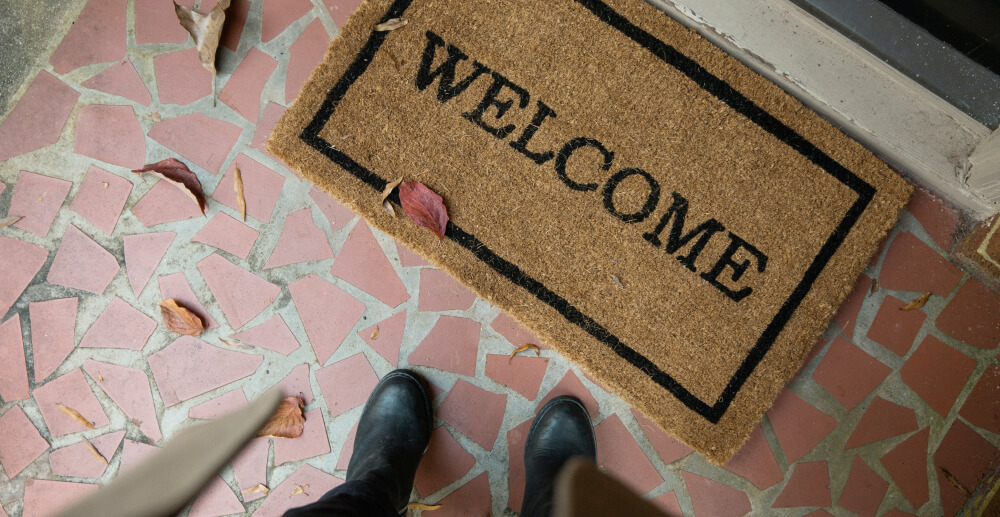Coming back from a relapse is tricky. The shame of having done the thing you swore you would not do again combined with the physical compulsion to do more and the desire to numb rather than face whatever damage you have now caused your life is a wretched trifecta.
Coming back from relapse during a pandemic where we were forced to sit in our homes, many of us unemployed, some making more money on unemployment than we were before, with alcohol and drugs one of the few things still available to do is even trickier.
Coming back from a relapse during a pandemic where we were isolated, during a time of tragedy, as people of color are murdered by the cops weekly, watching people we thought we knew to express horrifying opinions on basic human rights, while an exciting but intense civil rights movement includes police using excessive force at protests against the use of excessive force by police?
That’s enough to make a person say, “I’m not even going to try to get sober until they arrest the cops that killed Breonna Taylor.”
But it can be done. I know this because I know people that have done it. Thanks to the internet, I know a lot of people that have done it. And they are glad they did. So, with their help, I have compiled a list of tips to help you get your sober glow back. Even now.
-
Forgive Yourself
I have never been able to change anything until I stopped hating myself for doing it in the first place. It is more understandable to have relapsed during the past four months than to not have relapsed during the past few months. It’s been pretty scary out there. It is okay that this happened. You are still alive, so you get another chance. That’s good news. By indulging your urge to use, you got a fresh reminder of why that doesn’t work out for you. It happened. Relapse happens during the best of times, and we are currently dealing with a world unlike any other we have ever known. There’s a saying that “an addict alone is in bad company” and we have all been mandated to be pretty alone. Drinking or using may have felt like an old friend, one you didn’t have to wear a mask around or stay six feet away from.
-
Get Honest With People
Get in touch with the people who have supported your sobriety in the past and tell them the truth. This is an act of commitment to getting sober again. It will help you release some of the shame you are carrying around to talk to someone who accepts you and your current reality. It will also help you stay accountable. Do not call them when you are high or drunk. My sponsee, someone I am guiding through the 12 steps, went to rehab before the pandemic lockdowns began. He ended up leaving and drinking, not fully comprehending what he was leaving to go towards – a changing world. And also, no matter how much the world was on fire, he wanted to drink. He called me drunk and angry and I told him to call me back when he wanted to get sober again. He called the very next day. And he has been sober over 45 days now. He didn’t just call me, he called the friends he made in rehab and the people in his life that support his recovery and got honest with them too. Without that, it would have been too easy to continue thinking nobody would know. You know they know. Because you told them. A relapse is a burden that nobody has to carry alone.
-
Befriend The Mute Button
In the past three months, there has been a significant uptick in normal people drinking and using more heavily. Add to that the lack (until recently) of other things to post about and that resulted, at least in my feeds, of a disproportionate amount of posts and pictures depicting or glorifying drug and alcohol use. I completely understand that everyone is coping their best and that many people are able to set limits for themselves and follow them, however, it’s not what I need to be bombarded with, and, had I recently relapsed, it would be even more triggering. Feel free to mute, unfollow, and unfriend people posting things that trigger you. The more of a safe environment you can create for yourself now that you are back in the early days, the better chance you have of getting sober again.
-
Consider Online Support Programs
If you have health insurance, you may want to consider taking a refresher course – and having a structure that will help you stay accountable – by signing up for an outpatient program that is being held on Zoom. If 12 Step is not your thing or you are having a hard time finding a sponsor, there are sober coaches available – I like the program She Recovers for this for female-identifying people. She Recovers also holds free daily Zoom check-in meetings, links to which are posted in their Facebook Group. You may even want to go to sober living for a month, as a friend of mine did after drinking on Memorial Day and crashing her car. She doesn’t love it but sees it as a necessary consequence of her drinking.
-
Set Yourself Up Financially
Money is a huge trigger. Too much of it, and it feels like using will have little consequence, too little of it, and it feels like everything is ruined anyway might as well use our last $100 to get messed up. So much of what we are seeking in our addictions is a sense of security. To enhance my sense of security during very uncertain times I have diverted much of the money that comes into my checking account into enhancing my sense of security. I paid off my car insurance in full, my rent is paid several months in advance, I rebuilt my savings account, and have begun to refill the investment account I drained back in March. With my money spread out like that in ways that enhance my future, I am less likely to look at a lump sum in my checking account and think it should equal drugs. I am also less likely to work myself into such a state over the idea of paying rent in September that I need to quiet that fear by drinking today if rent is actually already paid for September. Although I have not relapsed during the pandemic, I believe in treating myself like I am in early sobriety during uncertain times.
You know that you can do this because you have done it before. And although it may be tempting to keep going because nothing bad has happened, it will be so much worse if you keep going before something bad happens. You are worth it. You can do this. I am with you.









